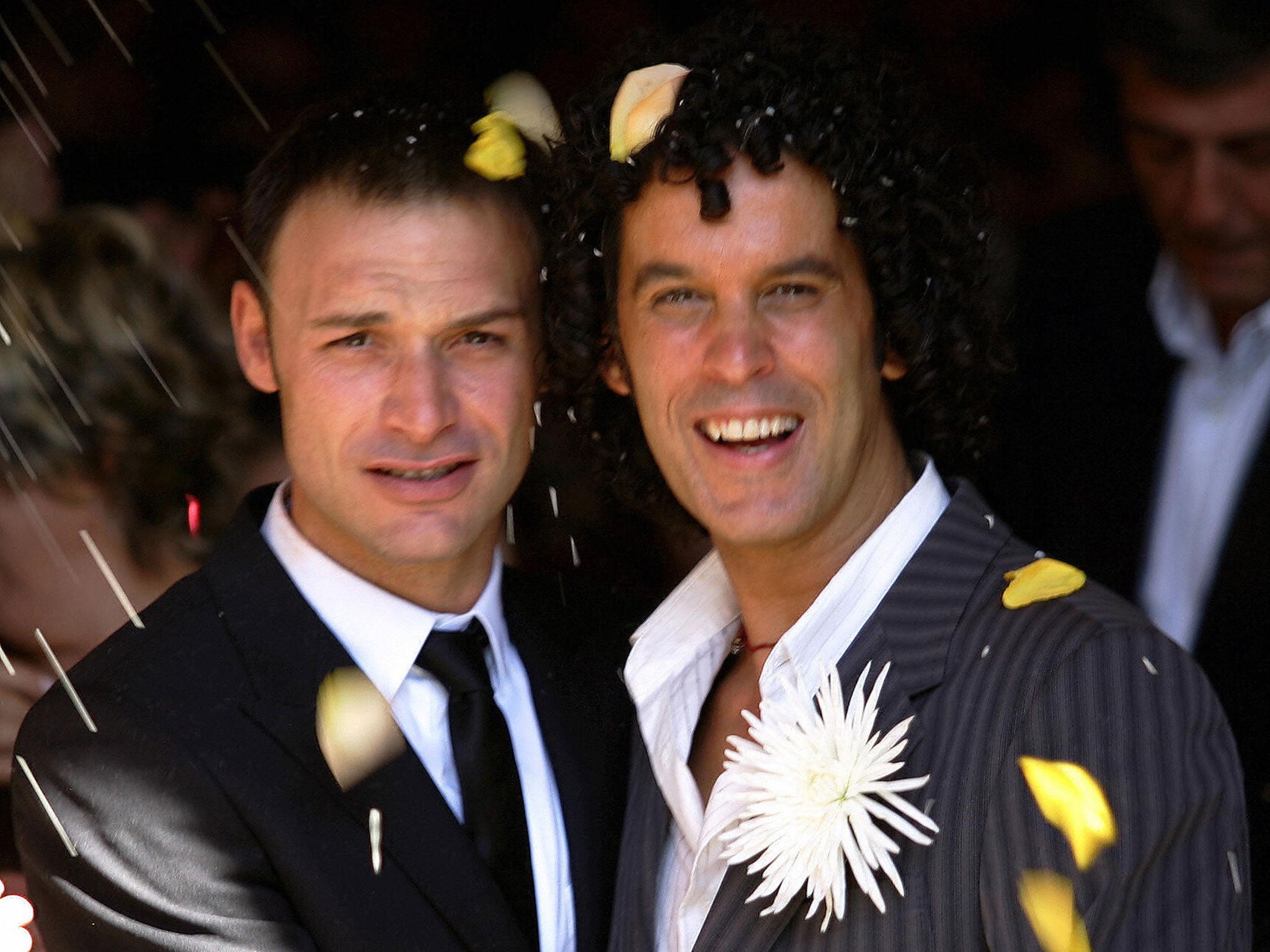Pedro Zerolo: Activist who helped Spain become first country to recognise same-sex marriage passes away aged 55
The politician and lawyer helped to persuade the government to legalise gay marriage in 2005, despite Spain’s deeply entrenched Catholic history

Your support helps us to tell the story
From reproductive rights to climate change to Big Tech, The Independent is on the ground when the story is developing. Whether it's investigating the financials of Elon Musk's pro-Trump PAC or producing our latest documentary, 'The A Word', which shines a light on the American women fighting for reproductive rights, we know how important it is to parse out the facts from the messaging.
At such a critical moment in US history, we need reporters on the ground. Your donation allows us to keep sending journalists to speak to both sides of the story.
The Independent is trusted by Americans across the entire political spectrum. And unlike many other quality news outlets, we choose not to lock Americans out of our reporting and analysis with paywalls. We believe quality journalism should be available to everyone, paid for by those who can afford it.
Your support makes all the difference.One of Spain’s leading gay rights activists, who was instrumental in ensuring that his country became one of the first in the world to recognise same-sex marriage, has died at the age of 55.
Pedro Zerolo passed away on 9 June, 18 months after being diagnosed with pancreatic cancer, which one Catholic priest described as being “a punishment from God”.
Mr Zerolo, a politician and lawyer, helped to persuade the Socialist government of Jose Luis Zapatero to legalise gay marriage in 2005, despite Spain’s deeply entrenched Catholic history. A few months later, Mr Zerolo married his long-term partner, Jesus Santos.
Asked to describe how he felt about the first wedding between two gay people in Madrid, in July 2005, just a month after the law changed, Mr Zerolo said it was, “a triumph of common sense and the state of law”.
The traditionally conservative Catholic Church in Spain said at the time that the legislation brought, “a danger of the weakening of the institution of marriage and, at the same time, of proper social order”.
Only the Netherlands and Belgium legislated in favour of gay marriage before Spain. As a result of the change, the Spanish legal system now refers to “spouses” rather than a “husband and wife” as it did previously.
In an interview with the liberal-leaning El Pais newspaper shortly before his death, Mr Zerolo said that he was not afraid of dying.
“I am ill, you know that,” he said. “Illness has taught me that you reap what you sow. I have been surprised at all the sympathy I’ve been getting from strangers.
“I think that, in order to beat this, you cannot be afraid. Fear is defeated through calm, by being calm with yourself. Without fear, you feel that life is on your side...”
Born in 1960 in Caracas, the Venezuelan capital, where his father had moved after being exiled from Franco’s Spain, Mr Zerolo later moved to Madrid to complete his legal studies.
He quickly became a leading light in Madrid’s gay scene and a passionate advocate for equality and human rights.
Mr Zerolo became head of the Spanish Federation of Lesbians, Gays, Transsexuals and Bisexuals in 1998 and when Mr Zapatero was elected in 2004, he asked Mr Zerolo to work on the radical legislation. He was later elected to Madrid’s city council as Socialist and, in February, was elected as the party’s head in the capital, despite knowing that his illness was terminal.
The party’s current leader, Pedro Sanchez, issued a statement, saying that Mr Zerolo, “taught us that all forms of diversity are part of socialism.” Mr Zerolo had tried to run to be Madrid’s mayor in 2007, but failed to win the Socialist party’s nomination, which some blamed on homophobia within certain elements of the party.
Gay rights groups said he had been an activist, “until his last breath”.
Spain is now considered to be one of world’s most gay-friendly countries. A Pew Research Centre poll in 2013 revealed that 88 per cent of people when asked, “should society accept homosexuality,” answered favourably, the highest of anywhere in the world.
Just six per cent of respondents said that homosexuality was “morally unacceptable”.
Join our commenting forum
Join thought-provoking conversations, follow other Independent readers and see their replies
Comments